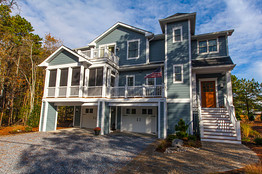IT’S ABOUT TO GET REAL (ESTATE)

After quite a bit of bingeing — and more than a little purging — the private equity real estate market appears to be finding a bit of equilibrium, even after poor performance and regulatory changes have thinned the ranks of dealmakers in the sector.
This month’s issue of Private Equity Analyst takes a look at how a number of buyout firms, some with dedicated real estate funds and some without, are positioning themselves to profit from a nascent real estate recovery, even as fundraising for real estate funds remained well off its 2008 high of $139.9 billion.
Private equity real estate funds raised an aggregate $54.9 billion last year, and a further 451 funds are currently on the road chasing $148 billion according to data provider Preqin.
Leading the charge of successful fund raises in 2012 was the Blackstone Group, which held a final close on $13.3 billion for Blackstone Real Estate Partners VII LP in the fourth quarter of 2012. The fund’s predecessors, including the $11 billion Blackstone Real Estate Fund VI LP raised in 2007, were top performers in the portfolio of the New Jersey Division of Investment.
The changing investment landscape has led Blackstone to shift Fund VII into some previously-untapped territory, namely, the single-family housing market. The firm created a company called Invitation Homes to buy foreclosed homes, fix them up and rent them to families. So far it has put about $2.6 billion to work in that space, amassing a portfolio of 16,000 homes.
In addition to single family housing, Fund VII has also continued an investment thesis with which Blackstone is well acquainted- investing in hotels. In May, the firm bought Motel 6 from French hotelier Accor SA in a $1.9 billion deal, making it the latest in a string of household-name brands, including Extended Stay Inc., and of course, Hilton Worldwide, to join the Blackstone stable.
Rival Carlyle Group also managed to bring in a sizable haul, gathering more than $2.3 billion for Carlyle Realty Partners VI. While the firm has been actively investing, it has also taken advantage of the modest recovery by selling more than $10 billion dollars worth of assets since 2011 according to data provider Real Capital Analytics. The firm netted more than $1 billion alone from the sale of 666 Fifth Avenue in New York, a property it bought in 2008 for $524 million.
Seeing the fractured market place and the manager shakeout, Siguler Guff looked to capitalize on its reputation for distressed investing by forming a new real estate fund of funds in the aftermath of the recession. The firm raised $630 million for its first vehicle, which closed in January 2012, a feat which is more impressive when considering that PERE fund of funds raised just $1.9 billion during 2011, according to Preqin.
A year later, that vehicle is 95% committed and 64% invested, backing firms such as Rialto Capital, which focuses on non-performing loans in the U.S., and financing a joint venture with Crocker Partners to redevelop office space in the Southeast. The firm also backed the debut fund from real estate developer Related Cos., which targets stalled real estate projects, such as a luxury condo building in downtown Chicago.
Not content to stay on the sidelines, some limited partners are taking advantage of the recent tumult, and GP’s desire for capital, to iron out separate accounts.
In October, New Jersey Division of Investment established a $350 million real estate-focused partnership with TPG Capital, while Los Angeles County Employees’ Retirement System recently issued a request for proposal for a separate account manager. Others, including the Pennsylvania Public School Employees’ Retirement System, continue to back individual funds. In January, Penn PSERS approved more than $600 million in commitments to real estate funds.
Write to Hillary Canada at hillary.canada@dowjones.com.

